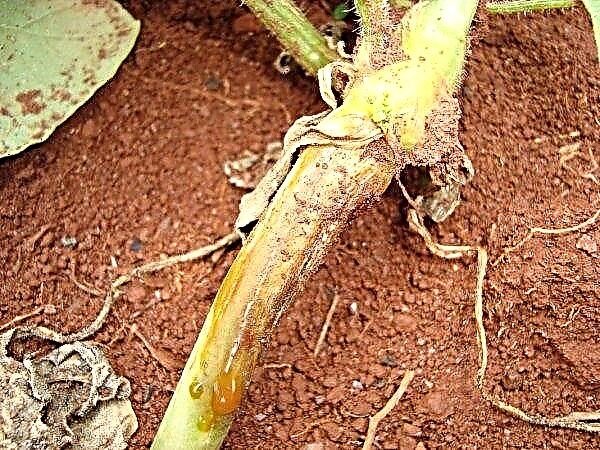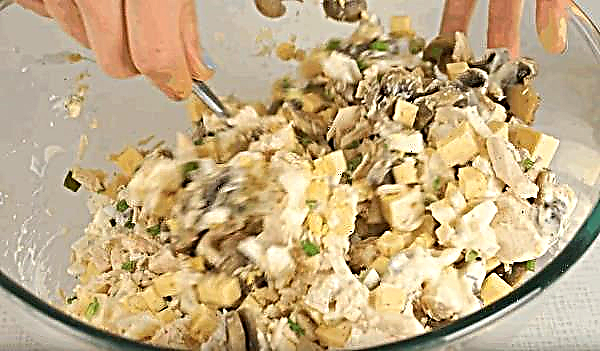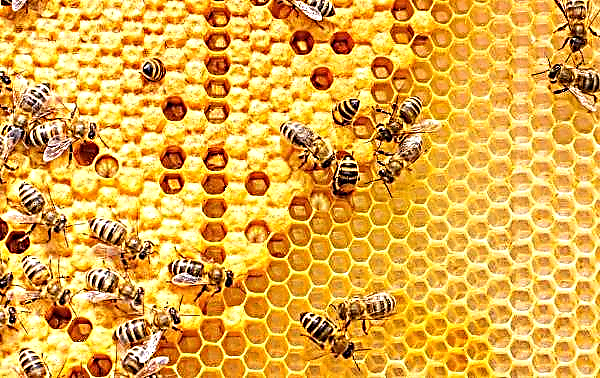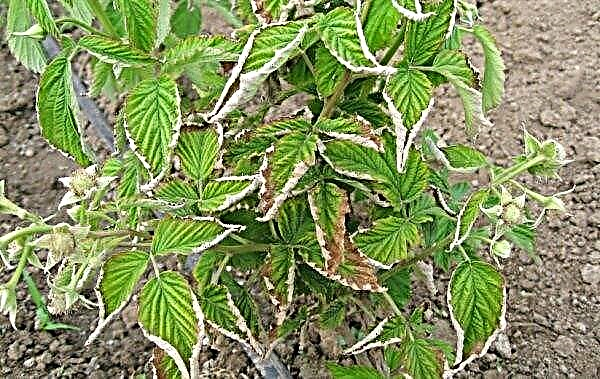Propolis is one of the most unique beekeeping products with a rich chemical composition and excellent medicinal properties. However, in order to preserve its value for the longest possible period, it is necessary to create optimal conditions. Which ones, let's figure it out.
Collection and preparation of propolis for storage
Propolis is a beekeeping product produced by bees to cover cracks, disinfect cell cells and seal foreign objects in the hive. In its warm form, it has a sticky texture, the color of which can vary from brown to dark green. With a decrease in temperature indicators, propolis hardens, darkens and loses a pronounced honey-wax aroma. As a rule, the collection of glue is carried out by beekeepers periodically, starting in July, during inspections of bee colonies. It is scraped off with the help of an apiary chisel from planks and upper bars, the walls of the hives, wooden ceilings, special gratings made in the form of frames. They can also be mined by removing from the impregnated special small canvases.
As a rule, the collection of glue is carried out by beekeepers periodically, starting in July, during inspections of bee colonies. It is scraped off with the help of an apiary chisel from planks and upper bars, the walls of the hives, wooden ceilings, special gratings made in the form of frames. They can also be mined by removing from the impregnated special small canvases.
They are placed in a cool, dry place or placed for 30 minutes in the refrigerator. Propolis chilled during the indicated time period becomes hard, brittle and separates well from the frames. After removal, the product is packaged in parchment or wax paper and put in a previously disinfected dry container of dark glass or wood.
Did you know? The healing properties of bee glue have been known since ancient times. Scientists claim that it was initially used to dissect skulls as a powerful disinfectant, antibacterial and antimicrobial agent that prevents infection with various infections.
Propolis Shelf Life
Experts do not recommend using bee glue to treat ailments if it has expired. Today, in pharmacies and specialized stores, the product is presented in different forms: dry, in the form of balls, alcohol tincture or ointment. Each type has its own shelf life.
Dry natural
The solid adhesive has the longest shelf life, which varies from 5 to 10 years. In this case, it is necessary to create the following conditions for it:
- stable temperature indicators in the room within + 20 ... + 25 ° С;
- a dry, dark place, reliably protected from the effects of the sun's rays and sudden changes in temperature;
- no odors should be present in the room, chemicals should be stored, and especially household chemicals or fertilizers;
- it is recommended to wrap the substance in dry form for storage with parchment and place it in a container made of wood.

In balls
For ease of use and safety, propolis is twisted in the form of small balls or made from sausages. At the same time, such balls are packed in parchment or wax paper, or they are placed in a container made of dark glass. During storage, the main thing is to prevent contact of the substance with air, so the container is tightly closed with a lid.
Important! Keeping propolis in a closet or pantry, you should make sure that there are no substances with a strong aroma that can easily absorb the product.
For storage of propolis balls, a dry, cool, dark place with temperature indicators not higher than + 25 ° C is suitable. The best place in the apartment will be the pantry. The kitchen is not considered the best location for the product, since the temperature inside is not stable.
Due to the included stove and oven, temperature indicators jump up and down, air humidity also varies, which has a negative effect on the state of bee glue. In the form of balls, when organizing the necessary conditions, the substance is able to maintain its useful qualities for 5-7 years.
On alcohol
Since alcohol is contained in the propolis tincture, it can last for a long time in such a consistency. At the same time, the conditions in which the alcohol tincture should be located are similar to how the product is kept dry. In this case, it is necessary to emphasize that the storage location should be inaccessible to small children.
Important! When keeping propolis in the pantry, the room should be regularly ventilated.
Experts recommend pouring the infusion into a container of dark glass, and place it in a dark room (cabinet, pantry), in which stable temperatures and average humidity indicators prevail. In the form of alcoholic infusion, propolis can be used for 4–5 years. The use of an undiluted infusion is strictly prohibited. For ingestion, it must be diluted with plenty of water.
Ointment
Another form of propolis is an ointment, which is recommended to be kept in a dry, cool and dark place, at temperature parameters + 15 ... + 22 ° С. The container with ointment should be placed away from direct exposure to sunlight, high humidity and sudden temperature jumps. Subject to all storage conditions, the shelf life of a store product is 6–8 years. If the ointment is prepared by hand, then its shelf life does not exceed three months.
Important! Propolis in its pure form is stored much longer than ointments and tinctures prepared from it, so experts recommend not buying funds based on bee glue with a large margin, but acquiring only the necessary dosage.
Where is better and under what conditions to store propolis
In an apartment or house, there are several places where consumers most often keep propolis: a refrigerator, a pantry or an ordinary kitchen cabinet.
In fridge
Despite the fact that most consumers prefer to keep bee glue in the refrigerator, this is not a suitable place for preservation. The fact is that at low temperatures the product loses its density and elasticity, and high humidity in the refrigerator quickly negates all its medicinal qualities. In addition, the refrigerator retains a host of other products and cooked dishes with the most varied odors, which propolis is quickly absorbed. You should also avoid storing the bee product in the freezer. Minus temperatures negatively affect the state of propolis, it begins to crumble and loses almost all the healing qualities.
In addition, the refrigerator retains a host of other products and cooked dishes with the most varied odors, which propolis is quickly absorbed. You should also avoid storing the bee product in the freezer. Minus temperatures negatively affect the state of propolis, it begins to crumble and loses almost all the healing qualities.
In the closet
Not the best place for the preservation of the product are kitchen cabinets. Even if they are not affected by direct rays of the sun and light, they are not protected from sudden temperature jumps, which have a negative effect on the quality of the glue.
Did you know? Even when boiling in water, the product is able to maintain all its healing properties for one hour.
In the pantry
Experts agree that the ideal place in the apartment for the preservation of bee glue is the pantry, which maintains low stable temperatures and an average level of humidity. The main thing is that the room does not have various garbage, trash, there is no household chemicals, substances and products with pronounced smells.
What to do if propolis is spoiled
You can learn about the corruption of propolis by its appearance and consistency: if it starts to crumble, it becomes very fragile and acquires an unnatural color - the product is not suitable for use. Unfortunately, it is unacceptable to use spoiled bee glue for treatment, as this can be dangerous to human health.
Such a product has no medicinal properties, and the reaction of the body from its consumption can be unpredictable: from the appearance of allergic reactions to severe intoxication. It is necessary to get rid of spoiled propolis.
Storage of propolis is a fairly responsible and serious process, on which the healing functions of the product and its therapeutic effect will depend. When saving glue, it is necessary, first of all, to protect it from temperature surges, high humidity and direct sunlight. Subject to optimal conditions, the shelf life of pure propolis can last up to 10 years.












